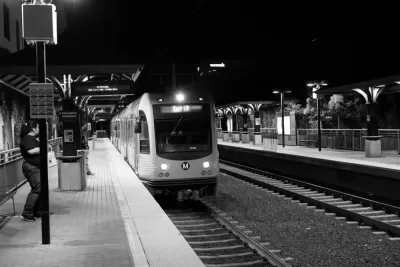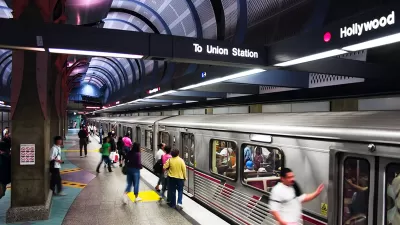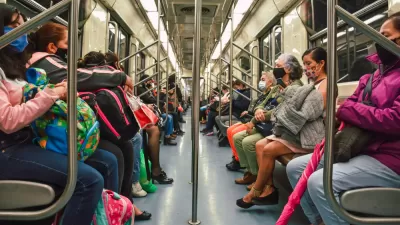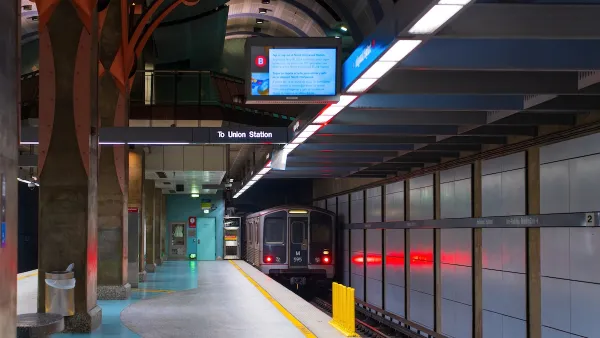In a survey, riders expressed concern about safety, cleanliness, and timeliness on the region’s buses and trains.

Women are using Los Angeles Metro’s buses and trains less than before the pandemic, according to the Los Angeles Metropolitan Transportation Authority (L.A. Metro). Writing for the Los Angeles Times, Grace Toohey explains that the agency says it is close to getting back to regular schedules but still faces an operator shortage, leading to unreliable service and long headways.
In a survey administered by Metro to over 12,000 transit riders, riders cited safety as a top concern, with other concerns including cleanliness and reliability. “Elizabeth Medrano, a bus rider since the 1990s and now a transit organizer with the nonprofit Women Organizing Resources, Knowledge and Services, said it’s hard to pinpoint one reason for decreased female ridership, but noted the pandemic is still affecting many women, who are struggling financially as they are unable to return to the jobs they held before the pandemic.”
Jennifer Vides, Metro’s chief customer experience officer, says the agency is working to address rider complaints. “We are looking at all of it, we are convening teams to talk about the results from the survey and to develop a customer experience plan that addresses these things,” Vides told the L.A. Times. “. Metro officials and community leaders are also hopeful that the new transit ambassador pilot program — which is putting 300 uniformed and trained, yet unarmed, Metro staff on trains and buses — will improve safety by increasing the number of people at transit hubs and providing support to anyone who needs help.”
FULL STORY: Women's ridership is down on L.A. Metro, new survey shows

Maui's Vacation Rental Debate Turns Ugly
Verbal attacks, misinformation campaigns and fistfights plague a high-stakes debate to convert thousands of vacation rentals into long-term housing.

Planetizen Federal Action Tracker
A weekly monitor of how Trump’s orders and actions are impacting planners and planning in America.

In Urban Planning, AI Prompting Could be the New Design Thinking
Creativity has long been key to great urban design. What if we see AI as our new creative partner?

King County Supportive Housing Program Offers Hope for Unhoused Residents
The county is taking a ‘Housing First’ approach that prioritizes getting people into housing, then offering wraparound supportive services.

Researchers Use AI to Get Clearer Picture of US Housing
Analysts are using artificial intelligence to supercharge their research by allowing them to comb through data faster. Though these AI tools can be error prone, they save time and housing researchers are optimistic about the future.

Making Shared Micromobility More Inclusive
Cities and shared mobility system operators can do more to include people with disabilities in planning and operations, per a new report.
Urban Design for Planners 1: Software Tools
This six-course series explores essential urban design concepts using open source software and equips planners with the tools they need to participate fully in the urban design process.
Planning for Universal Design
Learn the tools for implementing Universal Design in planning regulations.
planning NEXT
Appalachian Highlands Housing Partners
Mpact (founded as Rail~Volution)
City of Camden Redevelopment Agency
City of Astoria
City of Portland
City of Laramie





























